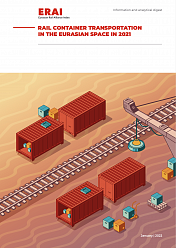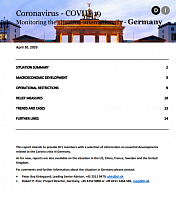After two years of intensive lobbying for electric cars to be shipped by train in China, it is finally possible. From 17 September, finished vehicles could be transport to, from and through China by rail. Important side note: the legal notice only covers finished vehicles.
«Internal inspection has been done, and the conclusion is that it is relatively safe to transport electric cars by rail, unlike lithium batteries», said a source within China Railways, which distributed the internal notification to its subsidiaries last week.
The shipment of lithium batteries, which is in high demand by electric car manufacturers, is still not permitted. But, this first move can be seen as a «signal for the future transport of lithium battery and dangerous goods», the China Railways source said.
Great first step
The shipment of electric cars by rail is indeed a great first step towards the market. With an increasing number of electric cars being produced in China, the demand for China-made electric vehicles in Europe is steadily on the rise. In 2021, the bulk of electric vehicles was produced in China: 49 per cent. This was compared to 27 per cent in Europe, 17 per cent in the US and 7 per cent in Japan and Korea.
So far, they were only allowed to be moved by ship, a much-longer journey. A rail journey would take around twenty days. Hence, railway companies and shippers alike have been advocating a loosening of the rules by China Railways.
Finally good news
«In recent years, we have received a lot of customer requests to transport electric vehicles by rail, finally we got this good news recently», said Yang Huang from Changjiu Logistics, an expert in the transport of vehicles between Europe and China.
«From a technical point of view, there is no difficulty in transporting electric vehicles by rail. Besides, the world’s top five automotive battery manufacturers are all from Asia and currently account for about 80 per cent of the market. This is a huge market potential.»
Still missing
Yet, there will be a large part of the industry that has to wait a little longer to share the euphoria. There is a great number of companies that relies on spare parts from China to manufacture their electric vehicles in Europe. Examples are Mercedes-Benz, BMW and Volkswagen, which all have a manufacturing plant in Debrecen, in Hungary. Car batteries and other car spare parts are frequently shipped from China, but when it comes to lithium batteries, this is not by rail.
The good news for these companies is that they will soon have a new company in town, as the Chinese battery manufacturer company CATL just announced plans to build its own factory in Debrecen. CATL is planning to invest 7.34 billion euros to build a 100 gigawatt-hour battery plant, which will better supply the demand of the European market for car batteries.
Supply is enough
Another company that won’t be needing rail is Chinese carmaker Nio’s, which will start operating a brand new plant in Hungary this month too. In this sense, the electric car market seems to have found its way around the rails already.
This being said, the demand for rail transportation is expected to be huge. By 1 October, the market demand may be calculated by the logistics industry, based on which space on the trains will be filled. Judging by the long list of lobbying companies, the supply won’t come short.
Electric cars and Hungary
Debrecen is a hub for electric car manufacturers, with major companies as Mercedes-Benz, BMW and Volkswagen being settled here. On 19 and 20 October we organise the Railfreight Summit on Tour in Debrecen, where the potential of rail transportation will be discussed.





